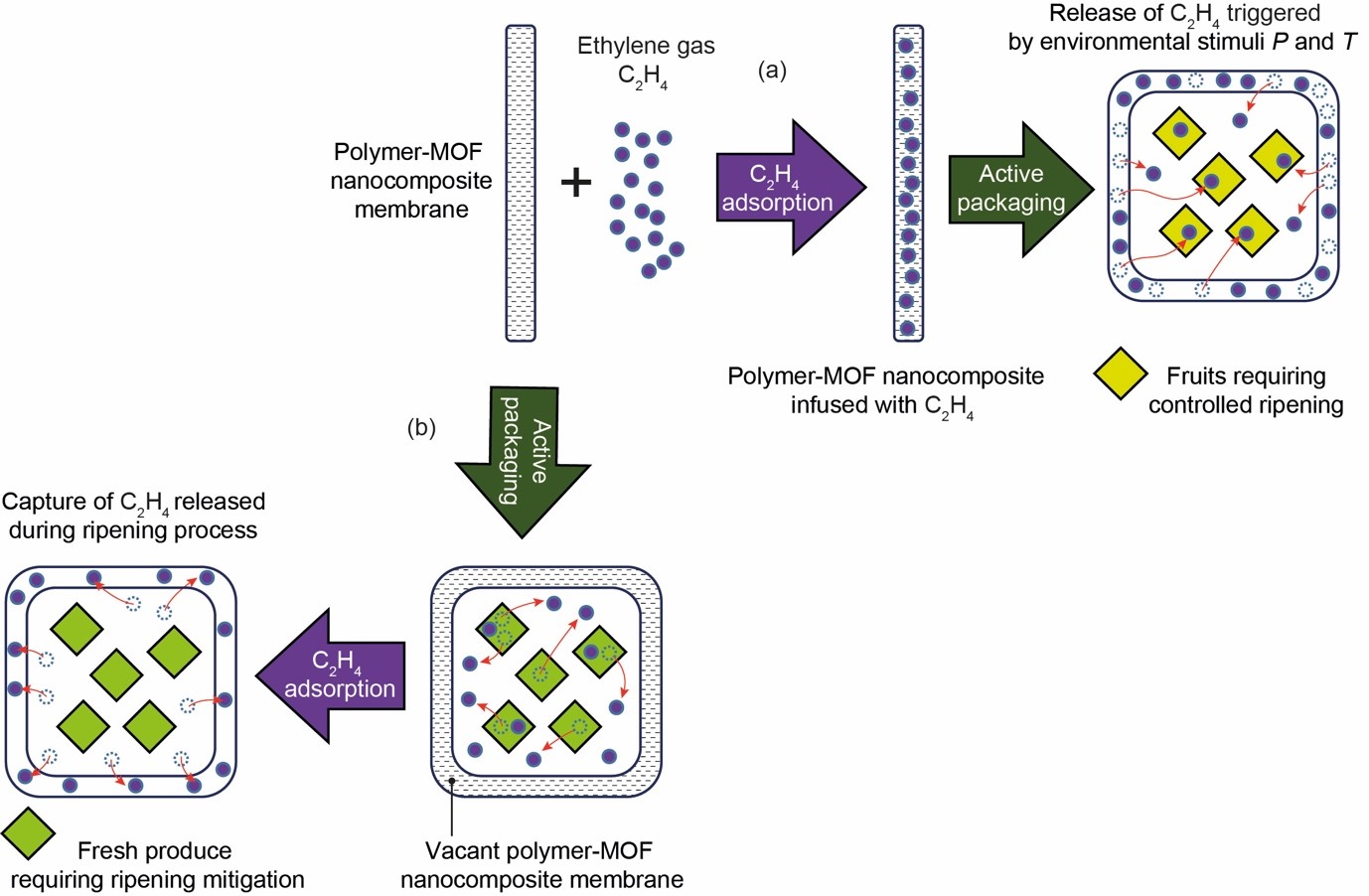Researchers from Multifunctional Materials and Composites Laboratory at the University of Oxford and the Advanced Materials Laboratory at the University of Alicante in Spain have investigated the use of polymer nanocomposites functionalised with nanocrystals, showing for the first time that zeolitic imidazolate framework (ZIF) nanocrystals that have been encapsulated within polymeric matrices can completely retain their adsorption capability.
The adsorption and release kinetics of the nanocrystals and their corresponding nanocomposites were evaluated to offer a better understanding of their adsorption/desorption mechanisms to facilitate applications that involve hydrocarbon management, such as in the packaging and transportation of fruit and vegetable. There is an ever-increasing need for solutions to the problems of transporting such perishable products over long distances. The amount of waste in the industry due to ripening and senescence during transportation and storage is huge, with the deterioration mainly being due to the hormone ethylene that is produced by fruit and vegetables.
As reported in Materials Today Advances [Mahdi et al. Mater. Today Adv. (2019) DOI: 10.1016/j.mtadv.2019.100008], with these nanomaterials, the team showed the new concept of tuneable mixed-matrix membranes to accomplish efficient ethylene control leveraging metal–organic frameworks (MOFs). The focus was on the design and characterisation of nano-ZIF/polymer nanocomposites that can achieve reversible C2H4adsorption/desorption at both tropical and refrigerated temperatures. They explored two different classes of polymers for fabricating the nanocomposites: glassy and rubbery matrices, to allow them to compare the ethylene adsorption–desorption behaviour.
The polymer-MOF nanocomposite membranes they developed bring full accessibility to the active porous sites of the nano-ZIF fillers, and there is large adsorption and release capacity of nano-ZIFs compared to the neat polymers, complete preservation of the structural dynamics of the embedded ZIF nanoparticles, and also robust mechanical and thermal properties retainment, which is useful for practical engineering applications. “The kinetics data produced reveal new insights into how to customise bespoke mixed-matrix membranes as smart control media. These can then be used to either mitigate or accelerate the influence of ethylene molecules”, said Joaquin Silvestre-Albero from the University of Alicante.
Potential applications for the research are numerous – as team leader Jin-Chong Tan told Materials Today, “For instance, in transportation and storage of perishable produce through to the perfect control of the ripening process, thereby reducing global food waste and improving environmental sustainability”. It is hoped the findings will lead to new research into the possible engineering applications of resilient polymer-MOF nanocomposites targeting ethylene management systems.






